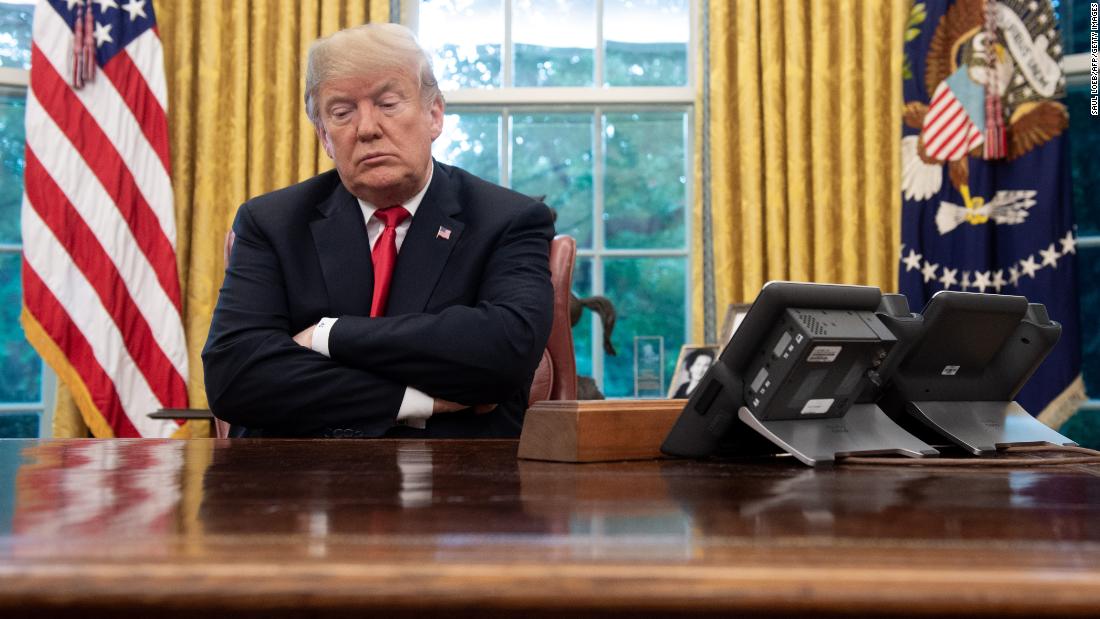
Yet two years since Trump's election, it's clear the billionaire businessman has governed as the opposite of a modern CEO.
Trump's CEO councils abandoned him in a rebuke to his incendiary comments on the violence in Charlottesville. He recruited executives to the administration, but they didn't fit in. ExxonMobil (XOM) boss Rex Tillerson was fired — by tweet. Goldman Sachs (GS) president Gary Cohn quit in the wake of Trump's imposition of protectionist trade policy.
Corporate America loves Trump's business tax cuts and deregulation, both of which have helped accelerate economic growth and send the bull market into overdrive.
But business can't stand Trump's populist instincts that have led to tariffs, a trade war with China and efforts to thwart immigration — despite a severe shortage of workers.
"Tariffs, trade wars and anti-immigration policies are anathema to business. They hate that," said Jeffrey Sonnenfeld, senior associate dean for leadership studies at the Yale School of Management.
Attacking business
Executives running America's biggest companies know that Trump could attack or demonize them at any time. The commander-in-chief has broken with precedent by attacking individual CEOs as well as some of America's largest employers.
Trump has gone after everyone from Amazon CEO Jeff Bezos to Merck (MRK) boss Ken Frazier, one of the nation's most prominent black corporate leaders. He attacked Harley-Davidson and the NFL. That's not to mention the almost-constant condemnations of the press, including CNN, the New York Times, NBC and the Bezos-owned Washington Post.
Trump is once again raising the prospect of cracking down on Silicon Valley. He has accused Google, Facebook (FB) and Twitter (TWTR) of trying to silence conservatives -- a claim all three companies deny. And Trump told Axios that his administration is looking into potential antitrust violations by Amazon, Facebook and Google.
Corporate America has quite the rocky relationship with what was supposed to be one of the most business-friendly administrations ever. Even though few major CEOs supported Trump in the general election, nor the primary, they mostly rallied around him after his victory.
CEOs like stability, not conflict
Trump promised a pro-business agenda and unity.
"I've spent my entire life in business, looking at the untapped potential in projects and in people all over the world," Trump said in his victory speech two years ago. "That is now what I want to do for our country."
But Sonnenfeld said executives have become "discouraged" by Trump.
"He stands for conflict — they don't like conflict. They like stability and social harmony," said Sonnenfeld, who is also founder and president of the Chief Executive Leadership Institute, a nonprofit focused on corporate governance that surveys CEOs.
Trump's leadership style is unlike that of almost any corporate executive, Sonnenfeld said. "It's like Vince McMahon became president of the United States."
Trade wars and inflation
Corporate America has gotten some things it wanted out of this administration.
Trump's tax cuts sparked a stock market boom in late 2016 and 2017 as well as record profits and stock buybacks this year.
He installed regulators and judges with a pro-business tilt. Corporate penalties have plunged, and regulators are moving to soften post-crisis rules imposed on banks.
But while Trump campaigned on his CEO cred, he also wrapped himself in populism and has governed in many ways antithetical to business.
The Trump bump in the stock market has started to fade as the buzz of the tax cuts' stimulus has lessened. After spiking in 2017, the market has become more turbulent. Investors fear that those same tax cuts may force the Federal Reserve to aggressively raise interest rates to prevent inflation from getting too hot.
"The economy really needs to slow to avoid a dangerous overheating," Jan Hatzius, chief economist at Goldman Sachs, wrote to clients this week.
That's why Goldman Sachs is calling for five more rate hikes from the Fed, or roughly two more than Wall Street is anticipating.
Likewise, corporate earnings calls are littered with complaints about tariffs and spikes for raw material costs. Trade war fears have contributed to market turbulence.
"The Trump administration's agenda in the first year was very pro-growth, and stocks reacted accordingly," Kristina Hooper, chief global market strategist at Invesco, wrote to clients. "The second year has seen an emphasis on policies that can run counter to economic growth — primarily protectionism — and stocks have posted very different returns thus far this year."
Now CEOs are wondering whether year three will bring back a return of pro-business Trump or if populist Trump will win out.
No comments:
Post a Comment